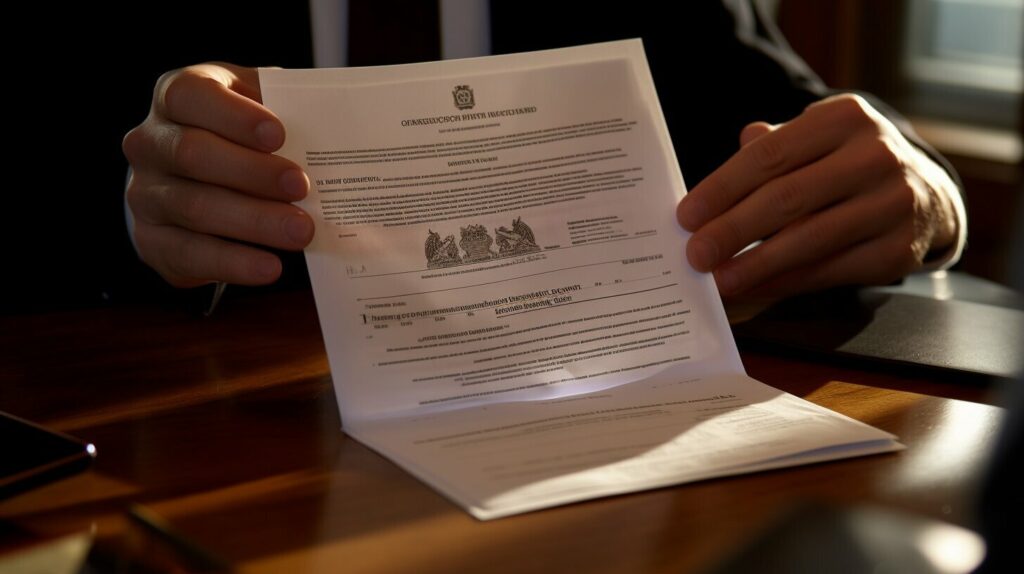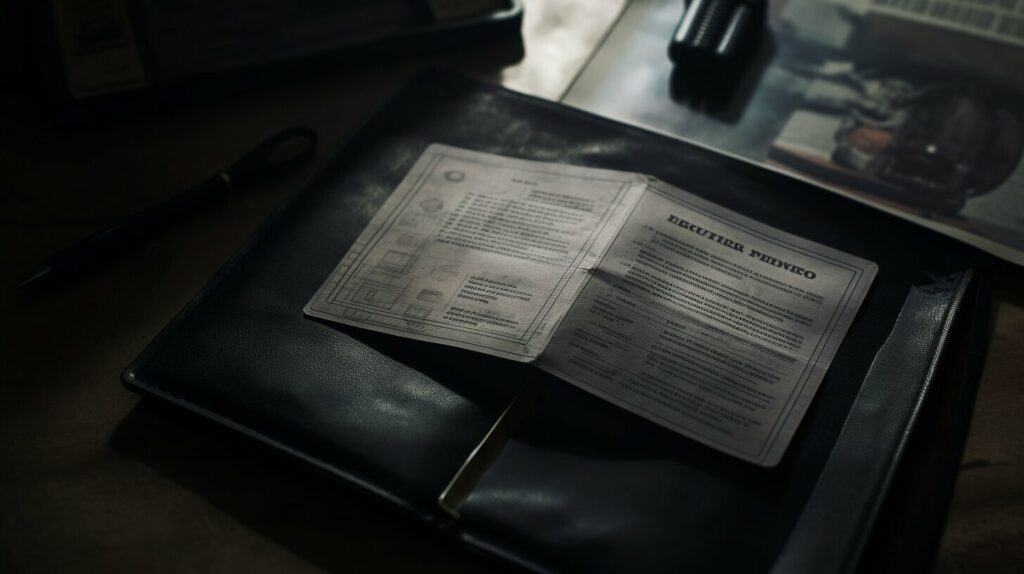Can You Get a Passport with a Criminal Record?
Individuals with a criminal record may wonder if they are eligible for a passport. The simple answer is yes, but there are certain factors to consider and steps to follow. A criminal record does not automatically disqualify someone from obtaining a passport, but it is important to understand the process and requirements.
When applying for a passport with a criminal record, individuals should be prepared to disclose their criminal history and any related details. This information will be taken into account during the application process and may affect the outcome.
It is important to note that eligibility for a passport with a criminal record may vary depending on the type of offense and other factors. However, with proper preparation and adherence to the application process, individuals with a criminal record can receive a passport and travel internationally.
Key Takeaways
- Individuals with a criminal record can still obtain a passport, but it is important to disclose this information during the application process.
- Eligibility for a passport with a criminal record may vary depending on the offense and other factors.
- Proper preparation and adherence to the application process can help individuals with a criminal record receive a passport and travel internationally.
Passport Application Process for Individuals with a Criminal Record
Obtaining a passport with a criminal record can be a challenging process. The first step is to complete the standard application and submit it to the State Department. However, individuals with a criminal record may face additional requirements or checks before their passport can be issued.
The State Department will conduct a criminal record check on all passport applicants. This means that any past criminal history will be reviewed, and the severity of the offense will be evaluated to determine eligibility for a passport. In most cases, minor offenses will not impact eligibility, but more serious crimes may result in passport restrictions or even denial of the application.
Individuals with a criminal record should be prepared to provide additional information and documentation during the application process. This may include court records, police reports, or other legal documents related to the offense. It is important to provide accurate and complete information, as any false statements or omissions can result in legal consequences.
| Passport Issuance and Criminal Record Check: | During the application process, the State Department will conduct a criminal record check on all passport applicants. |
|---|---|
| Passport Requirements for Individuals with Criminal Records: | Individuals with a criminal record may be required to provide additional documentation during the passport application process. |
It is important to note that the passport application process for individuals with a criminal record may take longer than usual. Additional review and processing of the application may be necessary, and it may take several weeks or even months to receive the passport. It is recommended to apply well in advance of any planned travel to avoid delays or complications.

Passport Issuance and Criminal Record Check
The criminal record check conducted by the State Department is an important part of the passport application process for individuals with a criminal record. This check is designed to ensure the safety and security of all travelers and to prevent individuals with a history of criminal activity from obtaining a passport for unlawful purposes.
The criminal record check will review any past criminal convictions or pending criminal charges. It will also examine any current or outstanding warrants or restraining orders. The severity and frequency of any criminal activity will be evaluated to determine the level of risk posed by the individual requesting a passport.
Passport Requirements for Individuals with Criminal Records
Individuals with a criminal record may be required to provide additional documentation during the passport application process. This may include court records, police reports, or other legal documents related to the offense. It is important to provide accurate and complete information to avoid any delays or complications in the process.
In addition to the criminal record check, the State Department may look at other factors when evaluating passport eligibility for individuals with a criminal record. These may include any outstanding child support obligations or tax debts, as well as any outstanding federal loans or other financial obligations to the government.
Travel Restrictions and Implications of a Criminal Record on Passport Issuance
Individuals with a criminal record may face restrictions and limitations when it comes to obtaining a passport and traveling internationally. The severity and type of the conviction can impact the passport application process and whether or not a passport will be issued.
Travel restrictions may vary depending on the country being visited, as different countries have their own regulations and policies regarding criminal records. Some countries may deny entry to individuals with certain criminal convictions, while others may allow entry with additional documentation or requirements.
It is important to note that any criminal record or history must be disclosed during the passport application process. Failing to do so could result in serious consequences, including denial of the passport, legal or financial penalties, or even criminal charges.
In addition, individuals with a criminal record may face closer scrutiny during the passport issuance process. Background checks and additional documentation may be required, which could result in delays in the passport application process.
Overall, individuals with a criminal record may face travel restrictions and additional requirements when applying for a passport. It is important to be transparent and honest during the application process and to research any potential limitations or restrictions when traveling internationally.

Factors Influencing Passport Eligibility with a Criminal Record
When it comes to obtaining a passport with a criminal history, there are a number of factors that can influence an individual’s eligibility. The severity and nature of the offense, the time that has passed since the conviction, and any steps taken towards rehabilitation can all play a role in the decision-making process.
One of the most important factors is the type of crime committed. Certain offenses, such as drug trafficking or terrorism-related crimes, can result in automatic denial of a passport application. Other types of crimes, such as misdemeanors or non-violent offenses, may not necessarily disqualify an individual from obtaining a passport.
Another key consideration is the amount of time that has passed since the conviction. While there is no set time period that guarantees eligibility, a longer period of time – such as 10 years or more – after the completion of the sentence can be viewed more favorably than a recent conviction.
Steps taken towards rehabilitation can also be taken into account. This can include completing a drug or alcohol treatment program, participating in community service, or obtaining a degree or job training. Evidence of rehabilitation can demonstrate that an individual has made efforts to turn their life around and is less likely to engage in criminal behavior in the future.
It is important to note that each passport application is reviewed on a case-by-case basis, and decisions are made at the discretion of the U.S. Department of State. Factors such as pending criminal charges or outstanding warrants can also impact eligibility.
Overall, obtaining a passport with a criminal record is possible, but it is important to be aware of the factors that can influence eligibility and to provide accurate and truthful information on the application. By taking the appropriate steps towards rehabilitation and demonstrating a commitment to following the law, individuals with a criminal history can increase their chances of obtaining a passport.

The Importance of Transparency and Honesty in Passport Applications
When applying for a passport with a criminal record, it is essential to be honest and transparent throughout the application process. Failure to disclose any relevant criminal history can result in the rejection of the application or even legal consequences.
Providing false information on a passport application is considered a federal offense and can lead to fines, imprisonment, and a criminal record. It can also result in travel restrictions and difficulties obtaining a passport in the future.
It is important to note that having a criminal record does not necessarily mean that a passport application will be denied. Many factors come into play in determining eligibility, including the severity and nature of the crime, the time that has passed since the conviction, and the individual’s current status and behavior.
Being upfront and honest about any criminal history can show a willingness to take responsibility for past actions and demonstrate a commitment to rehabilitation and respect for the law. It can also help to address any concerns and provide a clearer picture of the individual’s current circumstances.
Overall, when filling out a passport application with a criminal record, it is crucial to be truthful and transparent and to provide all necessary information to the best of one’s knowledge. This can help to ensure a smoother application process and avoid any potential legal or travel issues in the future.

Conclusion
In conclusion, individuals with a criminal record can obtain a passport, but there may be additional steps or requirements involved in the application process. It is important to be transparent and truthful when disclosing any criminal history during the application process. Failure to do so could result in serious consequences, including the denial of a passport or even legal repercussions.
While travel restrictions may apply for individuals with a criminal record, it is important to note that these restrictions are not necessarily permanent and may vary depending on the nature of the offense. It is crucial to research and be aware of any restrictions or limitations before planning a trip.
Factors such as the seriousness of the offense and how recently it occurred can influence passport eligibility for individuals with a criminal record. However, with the proper guidance and assistance, obtaining a passport with a criminal record is possible.
In summary, obtaining a passport with a criminal record is not an easy process, but with honesty, transparency, and willingness to comply with additional requirements, it is possible for individuals to obtain the necessary travel documents and explore the world.
FAQ
Q: Can you get a passport with a criminal record?
A: Yes, individuals with a criminal record can still obtain a passport. However, there may be additional requirements or checks involved in the application process.
Q: What is the passport application process for individuals with a criminal record?
A: The passport application process for individuals with a criminal record is similar to the standard process. It involves completing the application form, providing the necessary documentation, and paying the applicable fees. However, there may be additional steps, such as a criminal record check, that need to be completed.
Q: What are the travel restrictions and implications of a criminal record on passport issuance?
A: Travel restrictions and implications of a criminal record on passport issuance can vary depending on the specific situation and country. Individuals with certain criminal convictions may be denied entry to certain countries or face limitations on their travel. It is important to research and understand the potential restrictions before planning any international travel.
Q: What factors influence passport eligibility with a criminal record?
A: Factors that can influence passport eligibility with a criminal record include the nature and severity of the offense, any outstanding legal obligations or warrants, and the individual’s overall criminal history. Each case is evaluated on an individual basis, and it is recommended to consult with the appropriate authorities or legal professionals for specific guidance.
Q: How important is transparency and honesty in passport applications with a criminal record?
A: Transparency and honesty are crucial in passport applications with a criminal record. Providing false information or failing to disclose relevant criminal history can have serious consequences, including denial of the passport application and potential legal repercussions. It is important to accurately disclose any criminal history and follow the proper procedures during the application process.




